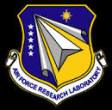AFRL posts new BAA for STAT program
 On July 7, the U.S. Air Force Research Laboratory posted a broad agency announcement for its Science and Technology for Autonomous Teammates (STAT) program (Solicitation Number: FA8650-17-S-6001).
On July 7, the U.S. Air Force Research Laboratory posted a broad agency announcement for its Science and Technology for Autonomous Teammates (STAT) program (Solicitation Number: FA8650-17-S-6001).
The objective of Science and Technology for Autonomous Teammates (STAT) program is to develop and demonstrate autonomy technologies that will enable various AF mission sets. This research will be part of Experimentation Campaigns in: 1 -Multi-domain Command and Control; 2-Intelligence, Surveillance, Recognizance (ISR) Processing Exploitation and Dissemination (PED); and 3- Manned-Unmanned combat Teaming to demonstrate autonomy capabilities to develop and demonstrate autonomy technologies that will improve Air Force operations through human-machine teaming and autonomous decision-making. The technology demonstrations that result from this BAA will substantially improve the Air Force’s capability to conduct missions in a variety of environments while minimizing the risks to Airmen. The overall impact of integration of autonomous systems into the mission space will enable the Air Force to operate inside of the enemy’s decision loop.
STAT will develop and apply autonomy technologies to enhance the full mission cycle, including mission planning, mission execution, and post-mission analysis. Particular areas of interest include multi-domain command and control, manned-unmanned teaming, and information analytics. The technology demonstrations that result from this BAA will substantially improve the Air Force’s capability to conduct missions in a variety of environments while minimizing the risks to Airmen. The overall impact of integration of autonomous systems into the mission space will enable the Air Force to operate inside of the enemy’s decision loop.
This effort plans to demonstrate modular, transferable, open system architectures, and deliver autonomy technologies applicable to a spectrum of multi-domain applications. Development efforts will mature a set of technologies that enable airmen to plan, command, control, and execute missions with manageable workloads. The software algorithms and supporting architectures shall:
– Ingest and understand mission taskings and commander’s intent
– Respond appropriately to human direction and orders
– Respond intelligently to dynamic threats and unplanned eventsChosen technologies will be open, reusable, adaptable, platform agnostic, secure, credible, affordable, enduring, and able to be integrated into autonomous systems. The program will be comprised of various technologies developed by AFRL and Industry, integrated into technology demonstrations and deliverables with all the necessary software, hardware, and documentation to support AFRL-owned modeling and simulation environments for future capability developments. Thus, all technology development efforts must adhere to interface designs and standards.
Full information is available here.
Source: FedBizOpps








